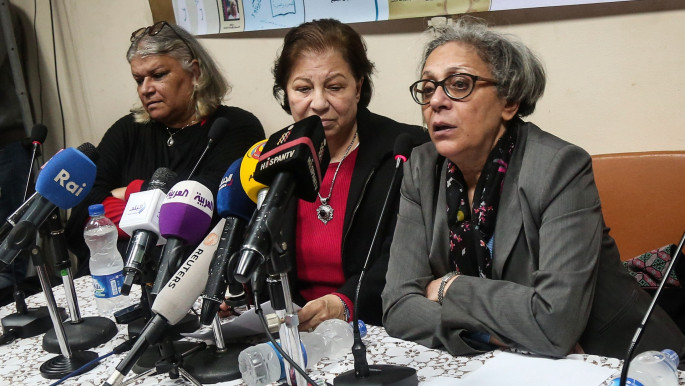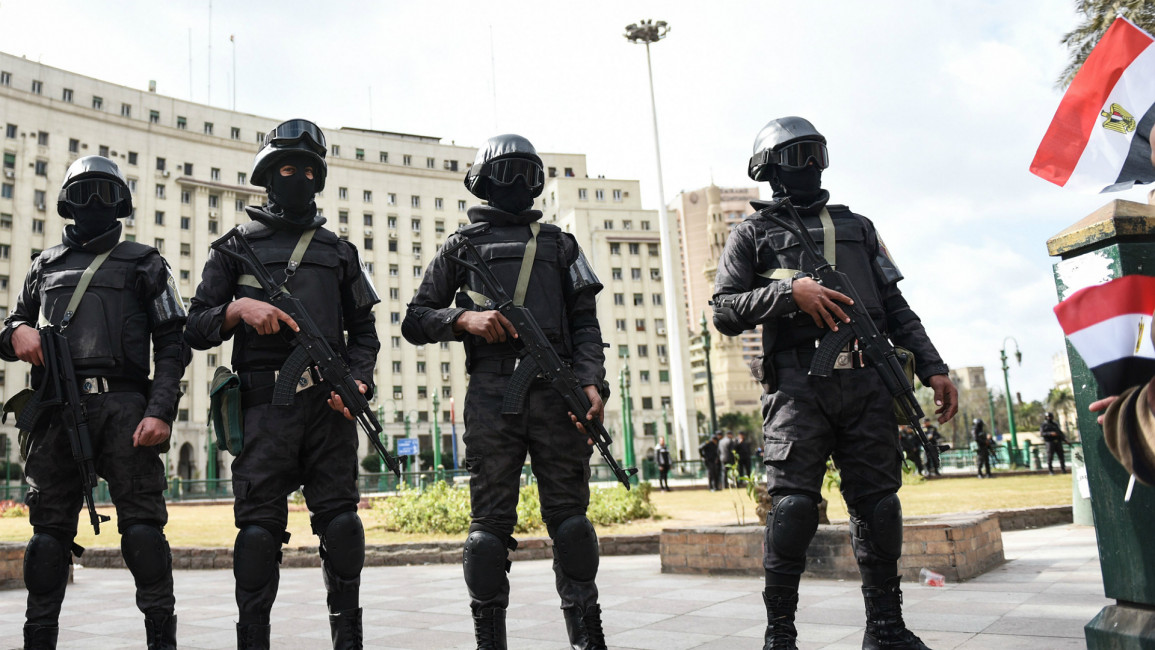Egyptian anti-torture centre vows to defy closure
The Egyptian government's plan to shut down a centre that aids the survivors of torture and abuse, including sexual violence, will not stop its activists from documenting cases abuses by security forces, the centre's founders have said.
Dr Aida Seif el-Dawla, a psychiatrist and co-founder of the Nadeem Centre for Rehabilitation of Victims of Violence, announced at a news conference on Sunday that authorities told them they will be officially closed on Monday.
The centre has been licensed since 1993 and has provided hundreds of torture victims with vital services including counselling and legal assistance.
Suzan Fayyad, a psychiatrist at Nadeem, said officials had initially tried to close the centre last Wednesday, but agreed to delay enforcing the order until Monday morning to give them time to contest it.
Rights groups including Amnesty International and Human Rights Watch [HRW] have criticised the threatened closure, saying it is part of a sweeping crackdown on human rights activists.
"The Nadeem Centre provides a lifeline to hundreds of victims of torture and the families of people who have been subjected to enforced disappearance," said Said Boumedouha, Amnesty International's deputy director for the Middle East and North Africa programme.
"This looks to us like a barefaced attempt to shut down an organisation which has been a bastion for human rights and a thorn in the side of the authorities for more than 20 years."
The centre's workers were told the closure order came "from the highest level".
 |
The centre's workers were told the closure order came 'from the highest level' |  |
 |
|
| The centre's founders speak at news conference on Sunday [Mohamed el Raai/AP] |
"The Egyptian authorities are smothering the country's leading human rights defenders one by one," said Sarah Leah Whitson, HRW's Middle East director.
"Closing the Nadeem Centre would be a devastating blow to Egypt's human rights movement as well as victims of abuse."
In 2003, Human Rights Watch awarded Seif el-Dawla its highest honour for her work to combat torture and promote women's rights and freedom of association in Egypt.
"The only way for there to be no torture reports is for the state to stop torturing people," said Seif el-Dawla, who was unable to control her tears in emotional remarks at the news conference.
Amnesty International has urged authorities to freeze the closure and provide the centre with a clear explanation of the reasons behind the order.
"The Nadeem Centre must be given an opportunity to challenge the order before a court," Boumedouha said.
 |
The Egyptian authorities are smothering the country's leading human rights defenders one by one - Human Rights Watch |
 |
Rights groups have accused President Abdel Fattah al-Sisi's government of regularly torturing detainees, and in the past year, of detaining suspected activists or Islamists without ever reporting their arrests.
As armed forces chief, Sisi toppled Islamist President Mohammed Morsi in 2013 after mass protests against his rule.
Security forces killed hundreds of Morsi supporters during protests and arrested thousands of others.
Secular activists were later rounded up. Non-governmental organisations have also been closed under what government critics say is a rollback of political freedoms won in the 2011 uprising that ended 30 years of rule under President Hosni Mubarak.
In December, more than a dozen Egyptian rights group issued a statement saying police appear to have "free rein to abuse citizens using ... torture, forced disappearances."
The Egyptian Centre for Rights and Freedoms said that there were 1,840 cases of enforced disappearances in Egypt during 2015, of which 366 detainees remain unaccounted for.
The government and interior ministry deny that torture is systematic, saying there have only been isolated cases.
But Egypt's human rights record has come under fresh scrutiny since Italian graduate student Giulio Regeni, 28, was found dead on the outskirts of Cairo this month. His body showed signs of torture.
The government has denied media reports that he was arrested by security forces before his death.
Agencies contributed to this report



